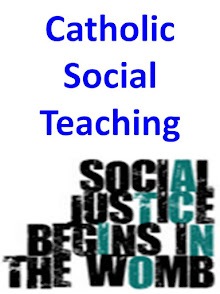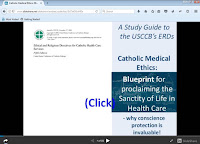(from LifesiteNews, 4/26/2024)
Moral theologians and confessors are concerned with human acts. These are judged to be moral or immoral to the extent to which they lead to human fulfillment and happiness. As St. Thomas Aquinas said in his Summa Contra Gentiles, “God is offended by us only when we act against our own good.”
One of the many odd things about the Declaration Fiducia Supplicans of the Dicastery for the Doctrine of the Faith allowing for the blessing of same-sex “couples” is that it seems entirely removed from the realm of human action. Indeed, there is a rather extensive exposition of what blessings are. But then one moves from that to the circumstances in which blessings are supposedly applicable to human beings who are “same-sex couples and those in irregular relationships.” In attempts to make the Declaration distinct from the 2021 judgment of the same Dicastery that such blessings could not be bestowed because the Church cannot bless sin, Fiducia turns out to be applicable only to abstractions.
The Declaration itself claims that it is dealing with blessings for same-sex “couples” and those in irregular relationships, but Pope Francis, after its publication, and in the face of significant criticism, claimed that the blessings were to be bestowed on the “individuals” in the relationship, not the relationship itself. Why, then, did the short “Declaration” itself claim nine times that it dealt with blessings for “same-sex couples”? But same-sex “couples” and those in irregular relationships are human beings with the passions and dispositions of embodied creatures, not spiritual beings, such as angels. As such, they understandably, and “naturally,” act upon the dispositions and bodiliness of their natures.
The Pope said that an exhaustive moral analysis of the couple’s situation should not be a precondition for the blessing. However, if two embodied human beings present themselves as a “couple” based on their sexual dispositions, one can surmise that they are acting in accord with their “natural” dispositions without carrying out an exhaustive moral analysis. Undoubtedly, two individuals in a deep personal relationship which would be worthy of the term “couple” would act as human beings, engaging in activities from which the term couple is derived: copulation. After all, the exchange of vows and the act of copulation are what bring about a married couple. The copulation of same-sex individuals and those in an irregular relationship, however, engender only pseudo-couples. Such an act would not lead to their own good since it would depart from purposes for which their sexuality was created by God.
One cannot deal with same-sex “couples” or those in an irregular union as though they were abstractions. They are human beings who act upon their dispositions. It is instructive to note that the Scriptures never refer to “homosexuals” or “homosexuality.” That is because homosexuals simply do not exist as concrete realities. “Homosexual” is an abstraction. 1 Corinthians 6:9 is often translated as saying that “homosexuals” cannot inherit the kingdom of heaven. But this is a mistranslation. St. Paul does not refer to individuals who are categorized abstractly as “homosexuals.” Rather, St. Paul refers to specific kinds of activities in which two individuals engage. He refers to sodomites and catamites, i.e., the “active” and “passive” individuals in anal intercourse.
A number of years ago, one of the major news networks presented an interview with the president of an African nation. When the interviewer asked the president why his country had outlawed homosexuality, he looked genuinely stunned and responded, “But do you know what they do?!”
Despite the Pope calling them unjust and sinful, there have never been laws against “homosexuality” which, again, is an abstraction. However, there have been, and are, laws against sodomy, specific human acts which, in part, constitute risks to public health and to the social moral order.
Whether there ought to be laws against sodomy, and that is what the Pope was referring to, is a question that can be debated. But what needs to be very clear is that it is human acts which are to be assessed as good or bad, moral or immoral, not an abstraction called “homosexuality.”
There is a sense in which Fiducia ought not to be of any concern to anyone. It is, in fact, a dead letter since it is not applicable to flesh and blood human beings but rather non-existent abstractions. And the more the Pope tries to “explain” the Declaration, the more it becomes a dead letter, since he now says it does not concern “couples” at all but individuals.
That being said, what the Declaration did accomplish, which must have been known by the prefect of the Dicastery for the Doctrine of the Faith, was a significant endorsement and advancement of the “gay agenda.” This is beyond doubt. Headlines to that effect appeared immediately around the globe. The day after the Declaration was issued there was a front-page photo in The New York Times of Father James Martin, S.J., who helped formulate the Declaration, blessing a same-sex “couple” in contravention to the very conditions outlined in the Declaration itself that such blessings were to be spontaneous and not public. The pictured blessing was as staged and abstract as the plastic figures of two men in tuxedos atop a gay wedding cake.
John M. Haas, Ph.D., S.T.L., M.Div.
John Cardinal Krol Professor of Moral Theology
St. Charles Borromeo Seminary
The Archdiocese of Philadelphia

















No comments:
Post a Comment